Online participatory tools
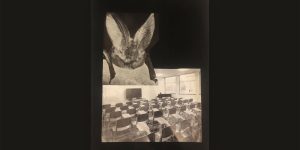
Creating a New Normal: Arts, Design, Humanities and Social Sciences 4 Emergency?
Eveline Wandl-Vogt, Nirmala Menon, Dario Rodrighiero, Elian Carsenat
Panel discussion: As this virus, and maybe further to come, affects the world and our way of living, we are aiming to explore pioneering research and action based art and design. During the time of social distancing and quarantining, it has become evident that even with the principles of science and technology that provide us with access to practical methods for securing our lives, humanities-based principles and skillsets have played a key role in enabling us to evolve. In light of this, we might want to rethink our approach to future living.
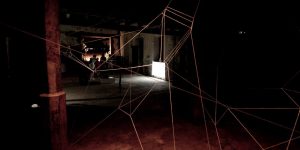
Acquired Immunity. Beyond Cultivamos Cultura
Virtual tours of the natural and social landscape around Cultivamos Cultura.
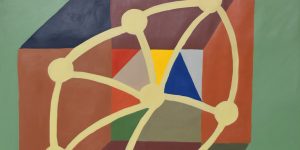
museum of knowledge science
Eveline Wandl-Vogt, Atiq Hashmi, Andreas Brandner, Louise Deininger
Virtual co-design session - Knowledge is at the heart of sustainable development. The achievement of the Sustainable Development Goals requires therefore effective knowledge management. However, knowledge needs to be understood in regional, societal, historic and cultural context. Art and culture are essential to the understanding of knowledge, specifically when knowledge - and its various aspects and processes - is reflected as a subject of art. Beyond reflecting knowledge, art is also a medium of knowledge, like articles or books.
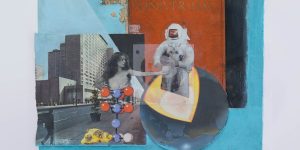
Algorithm Inventarium: methoda-thon
Matthew Battles, Max Haarich, Aleyda Rocha Sepulveda, Eveline Wandl-Vogt
Towards Inclusive, Sustainable Futures - The experimental "methodathon" is part of a series of “algorithm inventarium sprints” related to the project Algorithm Inventarium (AI+): diverse co-creation interventions combining action research approaches for accelerating the collaborative auditing of algorithms (e.g. by applying gamification techniques for data awareness, or auditing through interfaces). The aim of this session in connection with the ars electronica festival community is to identify, co-create and/or discuss specific methods, protocols and experiments for participatory research in the spirit of citizen science and community-based research in Vienna.
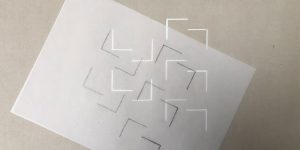
Algorithm Inventarium: The Greater Good Ethics Canvas
Eveline Wandl-Vogt, Henry Dobson, Max Haarich
Towards Responsible, Humane Technologies - In this interaction we are introducing the “Greater Good Ethics Canvas” to be used for the development of Humanity Centered Technology.
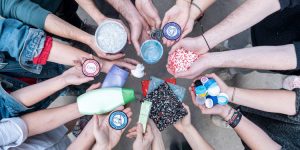
Meet the S+T+ARTS Community: Building Open Source Platforms
Joseph Klatt (US), Sören Lex (AT)
Precious Plastic and Precious Plastic Universe, started by industrial designer Dave Hakkens in 2013, is one of those platforms: focused on the reduction of plastic waste through sharing an open source toolkit of technologies and ideas, it has become a global movement of 80.000 people connected by the same passion and vision.
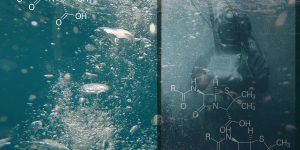
Meet the S+T+ARTS Community: Art & Science Collaborations
Ingeborg Reichle (AT), Michael Sauer (AT), Robertina Šebjanič (SI), Gjino Šutić (HR)
When artists, scientists and scientific research institutions join forces on collaborative projects, the collision of methods often leads to new and exciting perspectives for both the artistic and scientific practice.
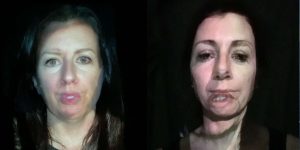
An Atlas of Absence - Online meeting performance
Summer Mei Ling Lee and Laura Boles Faw
Technology was supposed to connect us. The dominant modality for communication and connection during this pandemic era is the digital screen. In this work, collaborators Laura Boles Faw and Summer Mei Ling Lee continue their ongoing series addressing distance and longing that increasingly figures into this heightened moment.

CyberBallet
CyberRäuber (DE)
With the public rehearsals ending, the work will premiere in September 2020 at Ars Electronica Festival, in front of an audience that can join the performance via livestream.
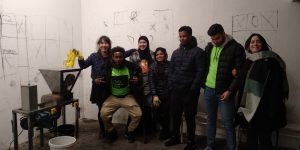
Bioplastics and the New Materiality of Waste
Idil Akdos (NO)
How do we dispose of new materials safely? The CitiComPlastic team investigate how bioplastic waste can be safely transformed into compost. Join them to discuss how new materiality interfaces with environmental issues, and how we need to change our practices, structures, policies and perspectives to address this.
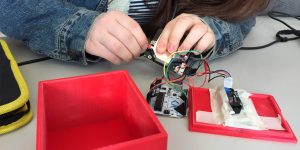
Schools and the Science of Air Pollution
Sonja Grossberndt (NO)
Together with teachers and students, the team from NILU shows us how to make low cost air quality sensors, and how to best use them to investigate air quality.
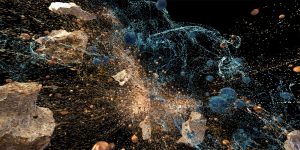
What is Noise? Interdisciplinary Discussion
Marc Aguilar and Víctor Jiménez (ES)
The team behind Noise Maps invite international experts in noise and sound to discuss our attitudes to noise, its effects and affect, and our agency in shaping soundscapes in this panel discussion with time for audience questions.
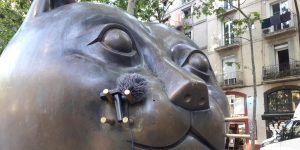
Sonic Heritage of Inner City Barcelona
Marc Aguilar and Víctor Jiménez (ES)
Bit Lab Cultural Cooperative work on Noise Maps with residents of Raval to gather audio recordings using audio moths placed around the city, and learn how to best investigate urban noise.
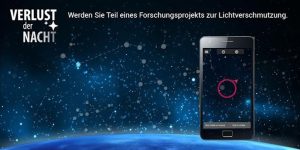
Loss of the Night
Helga Kuechly, Chris Kyba (DE)
The Loss of the Night team explains how light pollution affects our view of the night sky, and how our experience can be transformed into data. The presentation will kick-off a 24-hour global observation, where teams around the globe will tune in to show us what the night sky is like in their location, with the help of the Loss of the Night app.
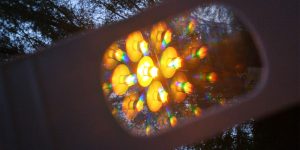
Tired Moths and Quiet Stars
Sibylle Schroer (DE)
The 'Crime Scene’ Streetlight project works with citizens and schools to research the effect of the design of street lamps on flying insect populations. Join the team at Brandenburg maker-hub Verstehbahnhof, where local teenagers will be gathering data about pollution; before touring the four Tatort Streetlight locations and learning how to identify flying insects.
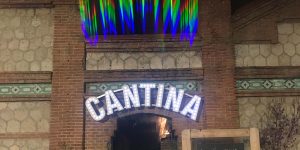
Street Spectra – Join the Streetlights Hunting!
Lucía García (ES)
Turn your smartphone into a scientific instrument using a cheap diffraction grating. The Street Spectra citizen science project lets you get surprising pictures of the colourful spectra produced by the streetlamps in your neighborhood.
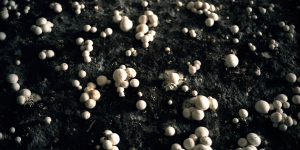
360º tour of Vigilantes (2018)
Iván Navarro (CL)
Immersive footage of Vigilantes, Museo del Hongo’s second exhibition at Museo de Arte Contemporáneo de Valdivia. Three species of mushrooms were grown from scratch and displayed in the museum’s underground vaults, with illumination from Navarro’s light sculptures, to create a biomimetic exhibition related to the cultivation of fungus gardens by ants and termites.
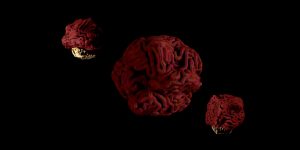
Local Fungi That Look Like Human Body Parts (2020)
Juan Ferrer (CL)
Digital installation composed of 3D models and a video that puts human body parts in conversation with a variety of mushrooms that grow in Chile. Our bodies are a fertile substrate for a complex microbiota that makes us who we are; this work aims to recreate a fungus garden within them, and to generate consciousness about the interconnection mycelium provides in nature.
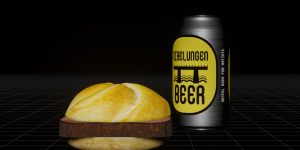
Beside the Nibelungen bridge / Neben der Nibelungenbrucke
Matthew Gardiner (AU)
Festival, late, Golden Nicas delivered. A mixed hoard spill into Linz; eclectic electric musicians chattering in nihongo, intro-and-extro-verted artists and friends not seen for an age for the tyranny of distance. Drawn involuntarily to places warmer and happier than Hans in Glück, to a lone Würstlstand in Linz. Perhaps beside the Linzer Nibelungenbrucke.
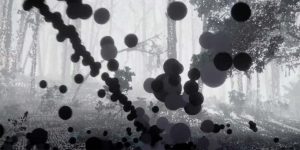
A Utopian Post-Colonial Future – Victoria, Australia 2027
Melbourne School of Design (MSD), The University of Melbourne (AU)
Can we imagine a utopia that creates a post-colonial social and political framework and overcomes the concept of land as commodity, inspired by indigenous concepts of relationship to country? Emerge yourself in VR to engage in a multitude of future scenarios that sketch out the potential to reflect on these questions.


